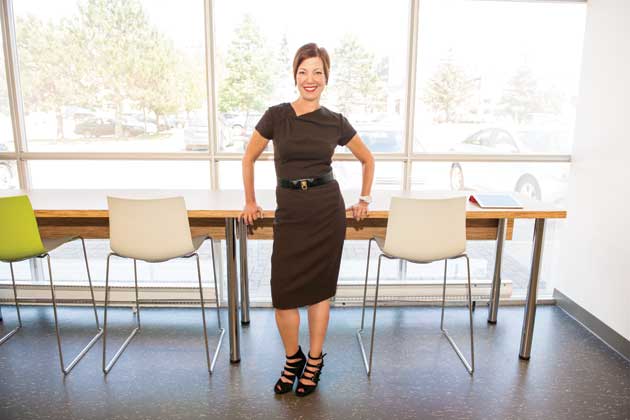The Time Is Now

It’s understandable that a landmark event – like the death of a parent – can bring you face-to-face with your own mortality. But it’s jarring when routine paperwork and everyday decisions do the same. “Received my new 10-year passport today,” wrote my sister-in-law Marilyn Lightstone on Facebook recently. “Had something of a moment when the expiry date of November 2024 caught my eye. My contemporaries will be able to relate. We are at the age where we live our lives with our fingers crossed.”
That post got a big response from her online community – everything from reassurance to denial to a call to action. “Crunch time can always be right around the corner,” wrote one of her friends. “But now it’s closer … time to get to work.”
I am not yet at the age where this is a given but I experienced that frisson – many times – when I was ill. I remember receiving a new MasterCard in 2008, after I was diagnosed with pancreatic cancer. The 2012 end date gave me a shock. “I am going to expire before my credit card!” That is the disturbing thought I had every time I pulled out the plastic – it seemed like a certainty at the time.
I also remember chiding myself when, without thinking, I renewed my licence sticker for two years instead of one. I was sure I had just created extra paperwork for my husband, who would undoubtedly want to get rid of my down-market vehicle. Then there was the matter of the new office. Our company acquired the ZoomerPlex in 2008, and the move was originally planned for 2011. I got upset every time the subject came up. I didn’t expect to make it here, and it was a new beginning for my colleagues. Life would go on — without me.
But somewhere along the line, I began to be able to have these thoughts without the ensuing drama. The shock of seeing a date beyond the one I expected on my tombstone became a twinge, then a sigh and finally a shrug. Like everything else, it’s easier once you get used to it. And getting used to it doesn’t necessarily mean a diminished desire for life.
Dr. Daniela Jopp, author of the 2012 Fordham Centenarian Study, found that the will to live is a key component of longevity. But she explained that the 100 centenarians profiled in her research tended to express it in a way that is paradoxical. “They all have no problem talking about death and dying. They have their last wills and they’re fully prepared but they still want to stick around. They say they enjoy life,” she told Inside Fordham. “So they have a really interesting attitude toward death and dying.” Jopp speculates this is the result of having seen so many people die – in other words, having plenty of time to get used to the idea.
Lately, I find myself getting unused to it. The years that I expected to mark the end of my lifespan have come and gone. I don’t even flinch when I enter the expiry date on my current cards – 2017. I just made an investment with a 12-year timeline. Like most other people, I have no idea how much time is left to me. That is a blessing, and I am grateful, but it also feels like I have lost something that was very hard-won. When I was sick, my priorities were clearer; my determination to use my time well was stronger. I wish I could remember the things I learned when I thought I was dying.
Since we are living longer and healthier, most of us would have to reach a great age before taking the attitude of the Fordham centenarians. It’s called the “well-being paradox.” It comes down to being happy even at a point when life is typified by losses and difficulties. It’s about really understanding that life is short, and we are lucky to be here. So maybe those 10-year passports and four-year credit cards are just the reminders that we need.
Libby Znaimer ([email protected]) is VP of news on AM740 and Classical 96.3 FM (ZoomerMedia properties).
http://credit-n.ru/kreditnye-karty-blog-single.html http://credit-n.ru/offers-zaim/otlnal-microzaimi.html